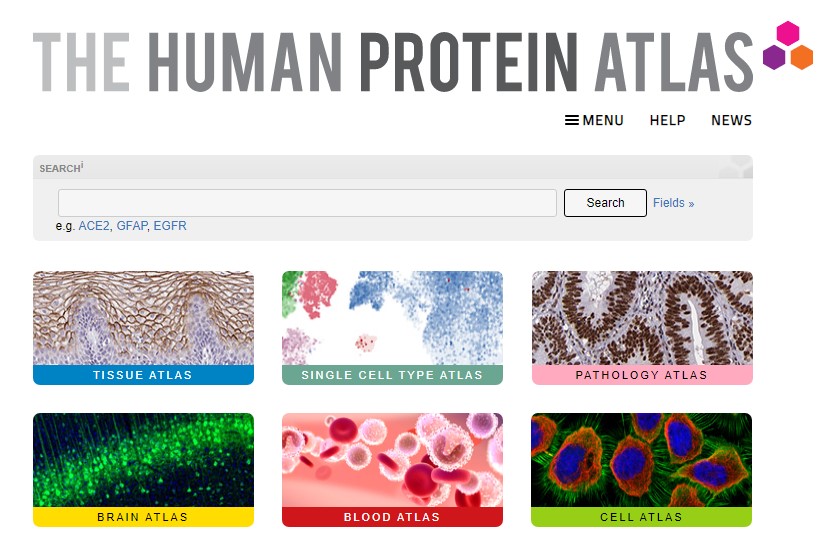The Human Protein Atlas
All the human proteins mapped in cells, tissues and organs
The Human Protein Atlas is a Swedish-based program initiated in 2003 with the aim to map all the human proteins in cells, tissues and organs using an integration of various omics technologies, including antibody-based imaging, mass spectrometry-based proteomics, transcriptomics and systems biology. All the data in the knowledge resource is open access to allow scientists both in academia and industry to freely access the data for exploration of the human proteome.
The Human Protein Atlas consists of six separate parts, each focusing on a particular aspect of the genome-wide analysis of the human proteins:
- The Tissue Atlas, showing the distribution of the proteins across all major tissues and organs in the human body
- The Single Cell Type Atlas, showing expression of protein-coding genes in single human cell types
- The Pathology Atlas, showing the impact of protein levels for the survival of patients with cancer
- The Blood Atlas, describing proteins detected in the blood cell types and proteins secreted by human tissues
- The Brain Atlas, exploring the distribution of proteins in various regions of the mammalian brain
- The Cell Atlas, showing the subcellular localization of proteins in single cells
The Human Protein Atlas program has already contributed to several thousands of publications in the field of human biology and disease and it is selected by the organization ELIXIR (www.elixir-europe.org) as a European core resource due to its fundamental importance for a wider life science community. The Human Protein Atlas consortium is mainly funded by the Knut and Alice Wallenberg Foundation.
 Our partner company Atlas Antibodies, in close partnership with the Human Protein Atlas HPA project, develops advanced antibodies and advanced reagents for Mass Spectrometry (MS)-based quantitative proteomics. Of the possible 20,000 protein coding genes in the human body, Atlas Antibodies with over 18,000 antibodies already covers 15,000 gene products.
Our partner company Atlas Antibodies, in close partnership with the Human Protein Atlas HPA project, develops advanced antibodies and advanced reagents for Mass Spectrometry (MS)-based quantitative proteomics. Of the possible 20,000 protein coding genes in the human body, Atlas Antibodies with over 18,000 antibodies already covers 15,000 gene products.




